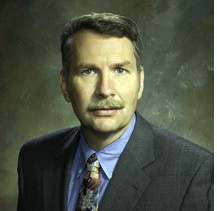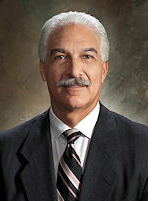DCNR Resignations Point to Fissures, Frustration
-
Susan Phillips
State parks director John Norbeck has announced he’s leaving his position, after serving the state for the past six years. Norbeck’s resignation letter does not give a reason for his departure. But environmentalists concerned about possible natural gas drilling on state park lands are worried. Jan Jarrett, the former head of the environmental group PennFuture, speculates on her blog that Norbeck was forced out.
“Abruptly yesterday, Norbeck submitted his “resignation.” Word has it that he was fired. Why would Secretary Allen fire an award-winning, competent senior official? Does the administration have plans for our state parks that would run counter to Norbeck’s vision of what our parks should be and provide to all Pennsylvanians?”
Environmentalists like Jarrett think the move may mean the Corbett Administration is planning to open up state park land to drillers. Under Norbeck’s leadership, the park system won the National Gold Medal Award for Excellence in Park and Recreation Management. PennFuture’s spokesperson Jeanne Clark says Norbeck’s departure marks a big loss for state park users.
“Obviously we’re very disappointed to lose Mr. Norbeck,” said Clark. “He was a good and faithful public servant, who did a terrific job managing our parks. We hope this doesn’t mean a change of direction for the state parks and DCNR.”
In a prepared statement, Corbett’s spokesperson Christine Cronkright denies the connection.

screen shot, Slippery Rock University
Paulette Viola, an ecology professor at Slippery Rock University was appointed to serve on the advisory council 18 years ago. Viola says performing her public advisory role on the council has become impossible, and the council is no longer independent. Slippery Rock University
Norbeck is not the only talent heading out the door at DCNR. Dr. Paulette Viola, an ecology professor at Slippery Rock University who served as a volunteer member of the Conservation and Natural Resources Advisory Council for 18 years, recently left in frustration. Viola tells StateImpact Pennsylvania that public input and advice from council members are no longer valued.
“We’re ineffective and inefficient at this point,” said Viola. “We’ve tried to work with the Secretary for the last six months, and it’s not happening.”
The Conservation and Natural Resources Advisory Council was created by statute when the legislature split the Department of Environmental Resources into two organizations, the Department of Environmental Protection, and the Department of Conservation and Natural Resources. The council advises DCNR staff on policy changes they’re considering, and it also serves to promote public input. Viola says in the past, before current Secretary Richard Allen was appointed by Gov. Corbett, the council worked well with DCNR staff and received whatever information members requested. But Viola says since Secretary Allen came on board it’s been difficult to get accurate and timely reports.
“The public deserves more input and attention than it’s getting,” says Viola. “The biggest thing [the council] has done over the years is make sure various policies got public hearings.”
But at one recent public hearing, Viola says DCNR staff members made it clear to public commenters that their input was not welcome.
“It made me very uncomfortable,” said Viola.
Viola says the final nail in the coffin was when she found out after the fact that DCNR had slashed the budget for a wildlife research program. StateImpact Pennsylvania broke this story back in January.
Budget cuts also eliminated the council’s staff members this year, which Viola says has jeopardized its independence. The council members are appointed by the governor and the legislature, and they have no formal decision-making power. But former head of DCNR, John Quigley, tells StateImpact Pennsylvania that the council functioned very well in their advisory role.
“Sometimes they told us stuff we didn’t want to hear,” says Quigley. “But it was always productive, and always constructive. They were there to work, to question, to be a fresh set of eyes on whatever the agency was doing.”
Quigley served as the DCNR Secretary for a year and a half under the Rendell Administration. Before that, he was chief of staff at the agency. Current DCNR Secretary Richard Allen responded to Paulette Viola’s comments and resignation letter in an email.


















